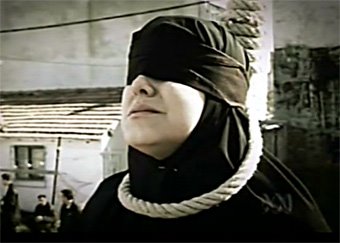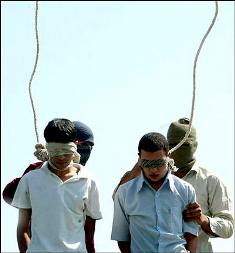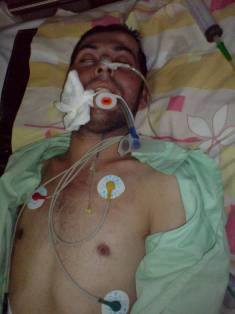
TEHRAN, Iran (AP) — The first mixed soccer game — females vs. males — since the 1979 Islamic revolution led to swift punishment Monday, as an Iranian soccer club said it had suspended three officials involved and handed out fines of up to $5,000.
Iran's strict Islamic rules ban any physical contact between unrelated men and women, and Iranian women are even banned from attending soccer games when male teams play.
The officials — a coach and two managers — first denied the game took place, but video clips on cell phones of the game were used as evidence against them, the Vatan-e-Emrooz daily newspaper reported.
Esteghlal, one of Iran's top two soccer clubs, said its disciplinary committee suspended two officials for a year while a third was suspended for six months. A fourth official was fined, a report posted on the club's Web site said.
The Jan. 20 game between the club's female team and its youth male team in Tehran was the first time in the 30 years of Iran's Islamic establishment that males and females played soccer together, observers said.
The youth team beat the women 7-0 in a game Vatan-e-Emrooz described as 'historic.' Video clips on cell phones were used as evidence against the suspended officials, who initially denied the game was held, the paper said. The report said the game was held at Marqoobkar stadium in south Tehran.
Mixed games for soccer, called football in Iran, were virtually unheard of even before the Islamic revolution.
Kamran Khatibi, a soccer writer at Kayhan sports daily, said he doesn't remember a "football game ever having been played between women and men in Iran — not even during Shah Reza Pahlavi's era."
Women can be just as passionate fans about soccer. One well-reviewed Iranian film, "Offside," follows the story of a girl who disguises herself as a boy to attend a soccer game at a stadium in Tehran.
In 2006, the same year the film was released, President Mahmoud Ahmadinejad surprised his conservative backers by deciding that women could attend soccer games, saying their presence would "improve soccer-watching manners and promote a healthy atmosphere."
But Iran's supreme leader, Ayatollah Ali Khamenei, disagreed. He has final say on all matters in Iran, so his stance held — no women in the stands, not even in the segregated section when men play.
And only women can attend games when women's teams play. However, foreign women are occasionally allowed at men's matches, purportedly because they don't understand the language and the cursing.
According to the Esteghlal soccer club, Mohammad Khorramgah, the club's technical manager, was suspended for a year and fined 50 million rials ($5,000) for the Jan. 20 game.
The only woman among the suspended — Saeedeh Pournader, head coach of the female team — also got a year's suspension. Mostafa Ardestani, head coach of the youth team, got a six-month suspension and a 20 million rial ($2,000) fine.
A prominent Iranian soccer player and manager of the club's soccer academy, Ali Reza Mansourian, got a written rebuke and a fine of 50 million rials, the club said.







































































